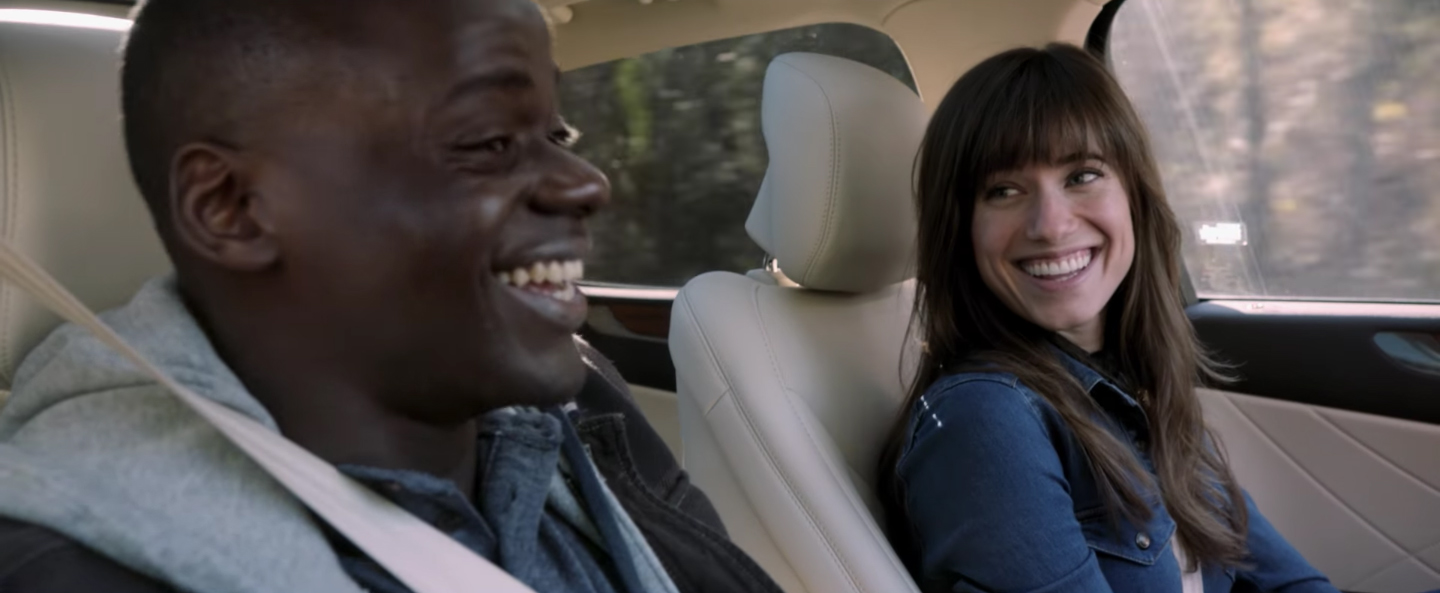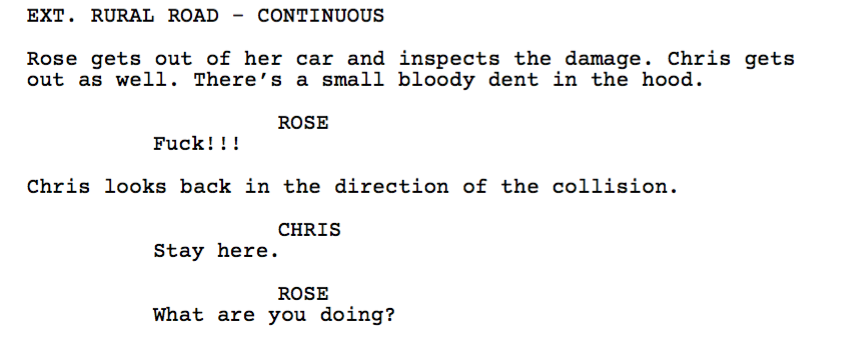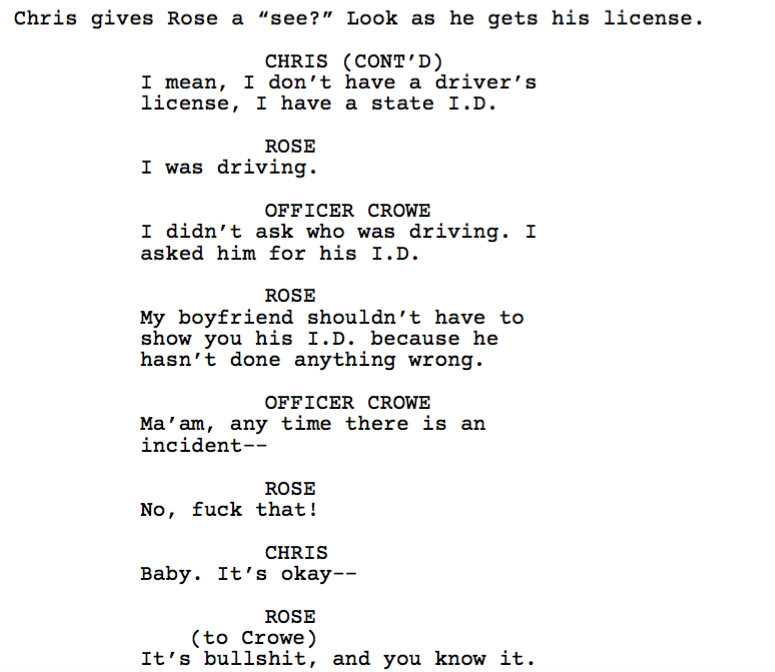Blueprints: "Get Out"
 Thursday, January 11, 2018 at 4:35PM
Thursday, January 11, 2018 at 4:35PM We’re right in the middle of the awards race heat. Jorge takes a look at one of the most celebrated screenplays of last year, and how the meaning of its words change upon a second reading.
[Caution! Spoilers ahead for Get Out!]

Get Out has rightfully been one of the most acclaimed movies of the year. It’s genre-bending reflection on white liberalism is a seamless blend of comedy, horror, and satire. As it goes with all great movies, it all goes back to the script. Jordan Peele’s screenplay plays with the audience’s expectations masterfully, packing it with thrills and reveals and twists.
There is a twist about two thirds into Get Out, where a character who we thought was on Chris’s side (and therefore, the audience’s) turns out to have been in on it the entire time, the reveal done with only the jingle of keys...
This changes everything that has come before. And upon a second viewing, every scene before that moment with Rose (Allison Williams on top of her game) has a different meaning. But it was there all along. Let’s see how the script planted the seeds of Rose’s intentions from the very start.
Get Out
Written by: Jordan Peele
[You can read the full script here. I will be talking about these pages and this scene.]
From the beginning of the film, Rose is portrayed as the ever-supporting girlfriend that is perhaps too good to be true (she was). She is embodied in the form of Allison Williams, who Jordan Peele has said he has after seeing her in Peter Pan Live!, and thought she looked the perfect amount of harmless.
But of course she isn’t. She’s bad. Hunting-boyfriends, milk-sipping, Froot Loop-crunching psychotic. And her intentions can be traced to earlier points in the script, where what initially is read as supportive and kind, on a second reading comes off as malicious and self-preservationist.

It is revealed in the car ride that Rose has not been home for over ten months. “The longest I’ve ever been away.” It’s a throw-away line, with no importance whatsoever. But knowing the reveal, that is probably the standard amount of time it takes her to lure men back into her house. Or maybe it’s a straight-up lie.
Then, as Chris tries to light up a cigarette, Rose grabs it and throws it out the window. We think this is because of a girlfriend’s concern over her boyfriend’s health. But it is actually a demented woman’s concern over the preservation of a body for future harvesting. Peele turns a simple, almost expectedly loving gesture, and fills it with malice without the audience’s knowledge.

Then they run over a deer. “There’s a small bloody dent in the hood.” Rose is distressed and concerned about it, as anyone would be if they had just run over a living thing. But not her. They have just left a literal blood trail behind them. And that doesn’t bode well for her family’s plans. Neither does a cop asking Chris for his I.D.
In what is perhaps the most telling and misleading moment once you know Rose’s true colors, she is adamantly against the cop taking Chris’s I.D. “My boyfriend shouldn’t have to show you his I.D. because he hasn’t done anything wrong.” The audience would initially read this as Rose’s awareness of the bias that cops have against black people, but it is actually a cynical attempt to stop the law from creating a paper trail.

What really ties everything together, what elevates the script and makes it work so brilliantly is Allison William’s performance. She gives Rose the right amount of charm, with a just a tint of mystery underneath it that pops so much more when you know who she really is. She makes both readings of the movie work feasibly. And without that, the film simply would not work.
Get Out does many things brilliantly: commenting on American race relations, creating a world and mythology with unique rules, being scary and funny and thought-provoking, and playing with the audience’s expectations. It’s one of those films that strikes harder upon further readings, and the script was written with that intention. Every smile looks different. Every line sounds off. He should’ve gotten out ten minutes in.
 Blueprints,
Blueprints,  Jordan Peele,
Jordan Peele,  Oscars (17),
Oscars (17),  Screenplays,
Screenplays,  thriller
thriller 


Reader Comments